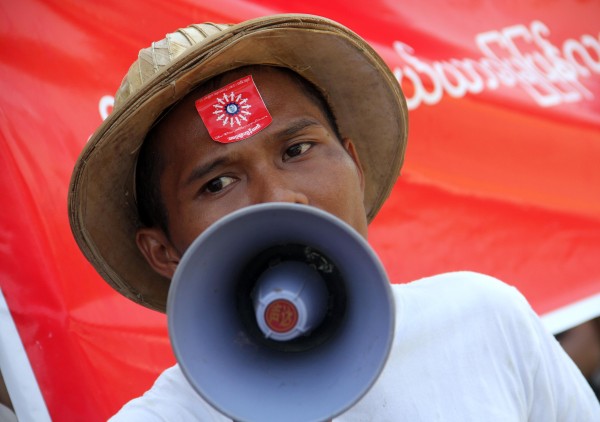The Burmese economy will be negatively impacted if ongoing disputes between employers and employees are not resolved, President Thein Sein warned.
In a May Day address to the nation, the president said, “As disputes between employers and employees emerge, more and more workers are protesting via demonstrations and strikes. In this type of situation, if we do not resolve the issues quickly or mitigate the problems according to the law, the industrial action will hurt the national output and the lives of workers’ families. It will also deter foreign investment and delay plans to extend domestic enterprises into ethnic areas. This will have an unwanted impact on our country’s developing economy.”
He noted that if the minimum wage were too high, it would increase production costs and consequently block foreign investment; however if the minimum wage is too low then workers who are struggling to survive will inevitably take to the streets to protest.
[related]
Burmese labor unions held May Day parades in Rangoon and Mandalay on Friday, with calls for the government to increase the minimum wage and provide full labor rights.
Some 500 factory workers from Hlaing Tharyar industrial zone in Rangoon’s western suburbs issued a list of 11 demands during their rally on 1 May, including an increase in the minimum daily wage at the industrial park to 5,600 kyat (US$5.60). The workers are currently paid between 1,500 – 3,000 kyat per day.
In his monthly speech to the nation on 1 May, the Burmese president said the government is implementing health and social welfare projects for workers which will guarantee their livelihoods and give them the legal rights to form labor organisations.



